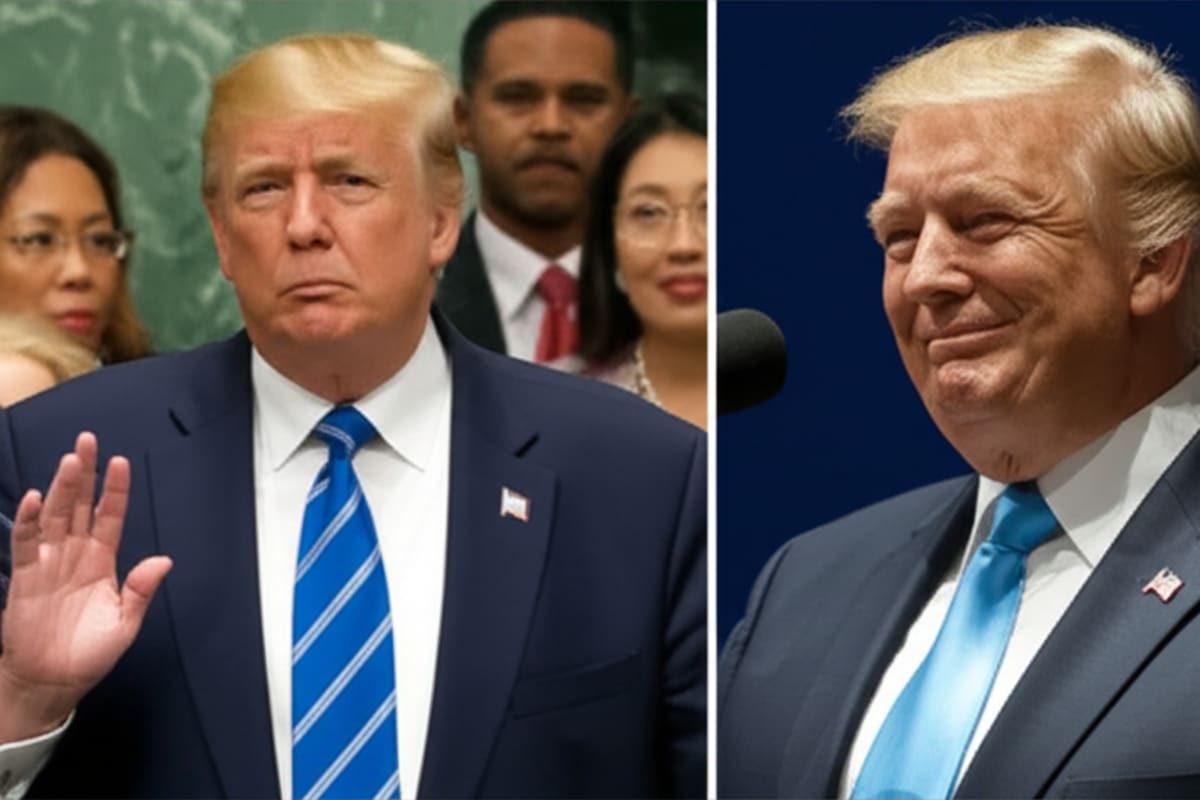Trump's UN Return: From Laughter to Silence

Six years ago, Donald Trump's address to the United Nations General Assembly was met with audible laughter. This year, a palpable silence filled the chamber as he delivered his pronouncements.
Background
This seemingly minor shift in audience reaction speaks volumes about the evolving global landscape and the altered perceptions surrounding the former US President
As James Landale astutely observed, the speech offered a 'clearest exposition of the way he sees the world,' a crucial lens through which to understand the implications of his unchanging worldview
Analyzing Trump's 2025 address provides a deeper understanding of these implications, particularly for Southeast Asia, a region increasingly vital to global trade and security
Trump's Unwavering Nationalism
Trump's consistent nationalist rhetoric, the bedrock of his political career, remains a central pillar of his message.
This unwavering focus on 'America First' policies, even within the multilateral setting of the UN, stands in stark contrast to the collaborative approach often favored by other world leaders
His address likely reiterated familiar themes of economic protectionism, skepticism towards international institutions, and a preference for a unilateral approach to foreign policy
For Southeast Asian nations, deeply integrated into global trade networks and reliant on international cooperation for regional stability, such a stance presents both significant challenges and potential opportunities
From Laughter to Silence: A Shift in Global Perception
The stark contrast between the laughter that greeted Trump's 2019 address and the silence of this year suggests a fundamental shift in how the international community perceives his pronouncements
While initial reactions to his populist rhetoric may have elicited amusement or disbelief, the intervening years – marked by significant geopolitical realignments, heightened global uncertainty, and economic volatility – have likely fostered a more cautious, and perhaps even apprehensive, response
The laughter might have reflected a dismissal of Trump's pronouncements as mere political theater, while the silence suggests a recognition of the potentially significant – and sometimes disruptive – impact of his viewpoints on the global stage
Implications for Southeast Asia
Southeast Asian nations, particularly those heavily dependent on US trade and security partnerships, must carefully navigate this evolving dynamic.
Trump's potential influence within the Republican party, despite his past electoral defeats, should not be underestimated
A resurgence of his political sway could have far-reaching consequences
His stance on trade, for instance, could translate into renewed trade wars and uncertain trade relationships, significantly affecting vital exports from countries like Vietnam, Thailand, and Malaysia
Furthermore, his often unpredictable foreign policy pronouncements can destabilize regions already grappling with complex geopolitical issues, such as the South China Sea dispute and the ongoing crisis in Myanmar
Opportunities Amidst ChallengesHowever, Trump's rhetoric may also offer unexpected opportunities.
For nations seeking to diversify their partnerships and reduce their reliance on a single superpower, his pronouncements could incentivize the strengthening of ties with other global players
This might include fostering stronger relationships with China, potentially creating a strategic counterbalance to US influence in the region
The Regional Comprehensive Economic Partnership (RCEP), for example, presents a viable alternative for trade diversification
The complexities of navigating these relationships, however, cannot be overstated.
Southeast Asian nations require deft diplomatic skills to maintain equilibrium and avoid becoming pawns in a larger geopolitical game, a challenge that demands sophisticated understanding of global power dynamics
Southeast Asian nations require deft diplomatic skills to maintain equilibrium and avoid becoming pawns in a larger geopolitical game.
Navigating the Complexities
The shift from laughter to silence at the UN underscores the critical need for Southeast Asian nations to carefully assess the long-term implications of Trump's worldview
While his direct influence might appear to be waning on the world stage, his underlying ideology continues to shape the political discourse within the United States and beyond
This requires a multi-faceted approach:
- Strengthening domestic economies to weather potential trade shocks and reduce dependence on single markets.
- Enhancing diplomatic capabilities to effectively negotiate complex international relationships and navigate geopolitical tensions.
- Proactively building diverse partnerships with a range of global actors to mitigate risks and capitalize on emerging opportunities.
Conclusion: A Call for Regional Adaptability
The continued relevance of Trump’s pronouncements, regardless of the audience’s immediate reaction, demands sustained and vigilant attention from regional policymakers
A thorough and nuanced analysis of his messaging, coupled with agile adaptation to shifting geopolitical realities, is crucial for Southeast Asian nations seeking to maintain stability, promote economic prosperity, and safeguard their strategic interests in an increasingly complex and unpredictable world
The future of the region depends on their ability to navigate these turbulent waters with foresight and resilience
